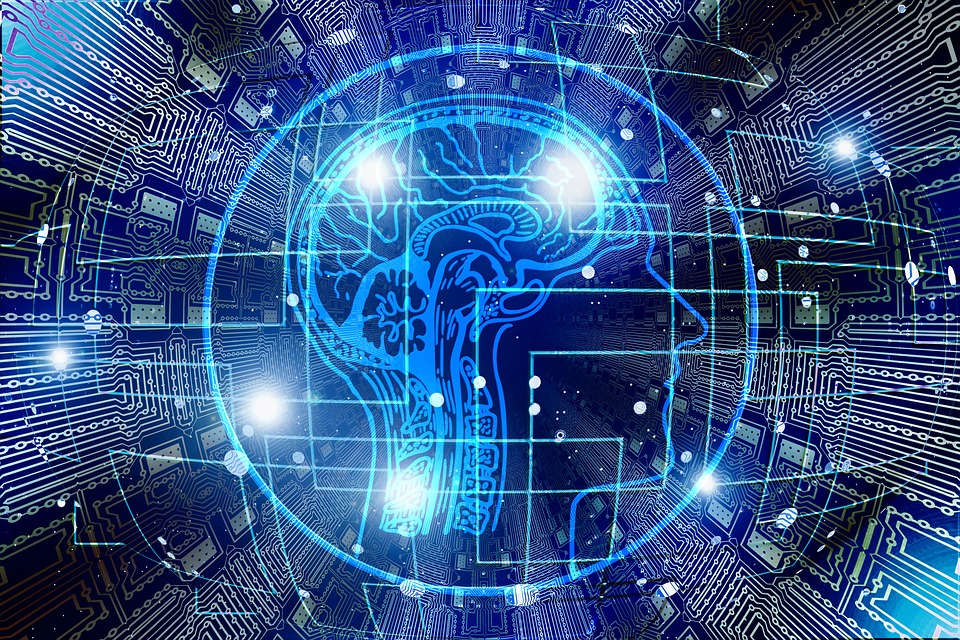
You may have heard that we have entered the fourth industrial revolution. What does that mean exactly? The first industrial revolution started in textile factories hundreds of years ago; the second affected everything from steel to motor cars; and the third brought us computers. Today, the fourth industrial revolution includes artificial intelligence (AI), 3D printing, nanotechnology, genetics, and machine learning. This accelerating rate of technological change is unprecedented, but we don’t expect it to slow down any time soon. Building a strong, successful business requires an understanding of these changes, and a plan to harness their benefits. Here are five technologies that we think will transform the business world over the next few years.
1. Edge Computing
This is something we use at Wyebot and so we aren’t surprised it’s expected to increase in use. With edge computing, information processing capabilities are placed close to the source of the information, so processing is done at or near the source of the data. This reduces delays in the network that would occur if large amounts of data had to be sent farther away for processing, to the cloud for example. Edge computing’s rise is fueled in part by the Internet of Things. IoT devices often can’t handle the processing required for advanced security measures, but advances in edge computing can. Edge computing also better manages the massive amount of data generated by IoT devices, and reduces connectivity costs by only sending pertinent information, avoiding unnecessary device-to-cloud data round trips. In other words, edge computing reduces latency and makes connected applications more responsive. This will grow in importance as we see a growth in devices that use AI, deep learning networks, and advanced sensing.
2. Artificial Intelligence
AI is a term we’re all familiar with, but its applications are nowhere near locked down. Advances in machine learning and user interface, like gesture recognition technology, will allow AI to expand its reach. The future could see AI in every machine, application, and process. Wyebot’s AI Engine is used to learn behaviors and patterns that help to optimize network performance and reliability.
3. Voice Technology
We know voice technology is part of AI, but we think it deserves to be called out on its own. We’ve already seen a rise in this disruptive technology, with personal assistants like Amazon Alexa and Google Home growing to combined sales of more than 150 million. How this technology grows depends on how sophisticated it becomes, which in turn depends partly on the development of natural language processing (NLP), a sub-field of AI that enables computers to understand and process human languages.
4. Quantum Computing
Google’s Quantum AI Laboratory predicts that small quantum technologies will be commercially available in five years. The technology has the potential to drastically change how we process and deal with large amounts of data. Quantum simulation, quantum-assisted optimization, and quantum sampling could enhance devices beyond recognition. Capabilities like immediate data feedback and quantum speeds will change the power and capacity of computers, which will in turn change everything we use computers for.
5. Spatial Computing
Otherwise known as virtual reality (VR), augmented reality (AR), and mixed reality (MR), this technology is often discussed in terms of the entertainment industry, but it isn’t going to stay that way for long. Other verticals such as healthcare, travel, education, architectural design, and sports all see potential uses for VR, AR, and MR. What if architects could virtually display plans and walk clients through designs? What if students could visit the moon, or meet George Washington? The combined VR/AR market is expected to grow to over $192 billion by 2021.
The possibilities for change are endless, both within these technologies and with ones not yet realized.
Every industry, and society itself, will be impacted. We might not know exactly what the future will bring but we know that, as technology continues changing, more and more processes will depend on a wireless network.
No matter what developments occur, you need assurance that your wireless network will continue working optimally and efficiently. Wyebot’s vendor agnostic Wireless Intelligence Platform™ (WIP) was created to deliver WiFi Assurance. It provides proactive, automatic insights and data analysis that let you avoid downtime and degradation, no matter how your network changes.